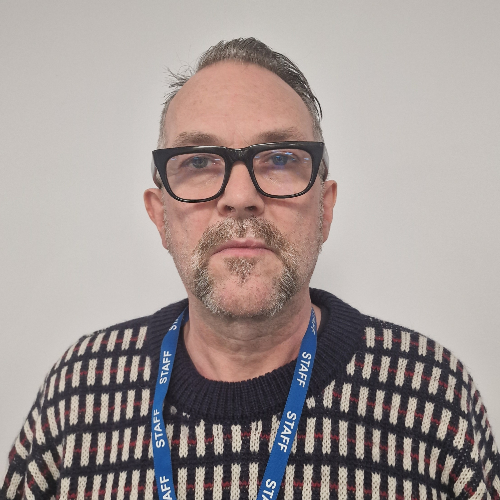
Written by:

Medically Reviewed by:
Last Updated:
March 4th, 2025
Librium Addiction Treatment | Detox and Rehab
Making the choice to stop using Librium is a huge first step towards a healthier you. At Linwood House, our expert teams understand recovery doesn’t just mean that you stop taking Librium; it means you get to grips with all of the stresses and difficulties in life that caused you to rely on it in the first place. This process can be both challenging and deeply transformative, with our three-step treatment programme giving you the best chance of a future free from Librium addiction.
Step one: Cleansing the body through Librium detox
All forms of benzodiazepine addiction have a strong physical element to them, and Librium is no exception. However, nobody becomes physically dependent on Librium after just one dose; it takes excessive Librium use over a long period for your brain and body to become reliant on it.
This results in a lot of Librium in your systems at all times, so if you try to go “cold turkey” and stop on your own, your brain panics because it has forgotten how to function without it.
This is called Librium withdrawal, and it causes various symptoms, which can be dangerous and unpleasant and often make people take Librium again even when they want to quit. Librium detox at Linwood House is all about making sure you’re safe and supported. Our support starts as soon as you arrive, with our detox team conducting a thorough health check to understand your specific needs. They watch over you to make sure you are safe and comfortable, give you medicine to help with Librium withdrawal symptoms and are on hand to help anytime, day or night.
What to expect from Librium withdrawal
All of this sounds scary, and you may be wondering why Librium detox needs such intense care and attention. Actually, for most people, Librium withdrawal symptoms are usually not dangerous, and they need some help managing them while their body is healing. These mild to moderate Librium withdrawal symptoms include:
- Anxiety
- Tremors
- Trouble sleeping
- Sweating
- Nausea
However, some people may experience more severe Librium withdrawal symptoms. This can happen if you have been using Librium for a very long time or in very high doses or if you have some other physical or mental health problems which affect how you react to Librium detox.
These Librium withdrawal symptoms are more dangerous and need the kind of expert care Linwood House provides to keep you safe. They may include:
- Seizures
- Hallucinations
- Severe confusion
- High blood pressure
- Rapid heart rate
The Librium detox timeline
Understanding how long Librium withdrawal lasts can help you prepare before you enter Linwood House. The timeline can vary from person to person, but here’s a general idea of what to expect:
First 2-7 days
This is when Librium withdrawal symptoms usually start, and you may have already experienced them if you have tried to quit before. They often include anxiety, sleep problems, shakes and sweating, which start mild and then get stronger during the first week.
First 2 weeks
Librium withdrawal symptoms usually “peak” during the second week. You will probably feel very restless, have muscle spasms or experience mood swings. This is often the toughest part of Librium detox and is when many people who attempt detox at home fail.
2-4 weeks
During this time, most of the Librium will have been cleansed from your body and physical symptoms will decrease or disappear altogether. However, your brain can still be adjusting to life without Librium so things like anxiety and sleep problems may linger.
Beyond 1 month
Benzos like Librium often take the longest to detox from, especially for long-term dependencies, and some people might still have symptoms even after a month. You may experience cravings, mood swings, or trouble sleeping, and you will need extra support from your Linwood House teams to keep you on track.
Step two: Holistic healing with Librium rehab
So you have got through Librium withdrawal and have a whole new bill of health! That’s great news but now it is time to focus on rebuilding your life and staying sober. Librium rehab works in tandem with detox to help you do just that. At Linwood House, we offer an inpatient Librium rehab programme where you stay with us as a resident so you can dedicate all your time and energy to this important process.
Through different forms of treatment therapies, you will look back at what led you to start using Librium and understand the triggers that may cause you to use it again. For example, if Librium has become your way of dealing with stress at work or school, we will explore different stress-relief techniques that don’t involve drugs. Likewise, if you take Librium because it helps you to forget about some traumatic event that happened in your past, we will help you face those memories and find better ways to move on without using Librium.
Librium rehab therapy at Linwood House
Our benzodiazepine rehab programmes offer a combination of the most effective and dynamic addiction therapies. Each can give you a fresh understanding of your path to Librium use and provide handy tools to help you stay sober and live better:
Individual therapy
During these personal sessions, you will get the time and space to work through everything that has led to your Librium use. It’s a chance to discuss everything going on in your head, any problems you are experiencing during rehab and which strategies will work best to help you stay off Librium for good.
Group therapy
Group therapy is a fantastic opportunity to meet other people who have had similar experiences. You can share your stories, make friends, and pic
k up tips that you’ve tried and tested from people who can empathise with what you’re going through.
Family therapy
Librium use and addiction can have a huge impact on your loved ones and cause a lot of heartache. Family therapy helps patch things up with your family, rebuild trust and help your family give you the support you need both during and after your stay in Linwood House.
Holistic therapies
Linwood House also offers different activities like yoga therapy, meditation and art therapy. These enjoyable sessions help you relax, give you some time to reflect on what you’re learning in rehab and find new ways to express what you’re feeling.
Step three: Aftercare planning for lifelong recovery
There is no “cure” for addiction, and there are very few people who walk out of rehab and never think about Librium again. For most of us, recovery requires a lifelong commitment, with many ups and downs along the way.
To help you with these challenges, you will create a Librium relapse prevention plan during your stay at Linwood House. This will include different strategies to help you handle whatever life throws at you. Some of the most important of these will probably include:
- Attending Linwood House’s aftercare programme – weekly group therapy for a year free of charge – as well as local recovery groups like Narcotics Anonymous
- Starting new hobbies to stay busy and happy
- Learning to lean on family, friends and other people who make up your support network
- Living a healthy life so you feel good and don’t fall back into old habits
- Making a list of the people, places and other things that could potentially trigger Librium use so you can plan effective ways of coping with them
Begin Librium addiction treatment today
Linwood House has a proven track record of helping people just like you break free from Librium and build healthier, happier lives. Our expert team understands the challenges you face and can help you take significant steps towards a future free from Librium. Contact us today to begin your new life in recovery.



